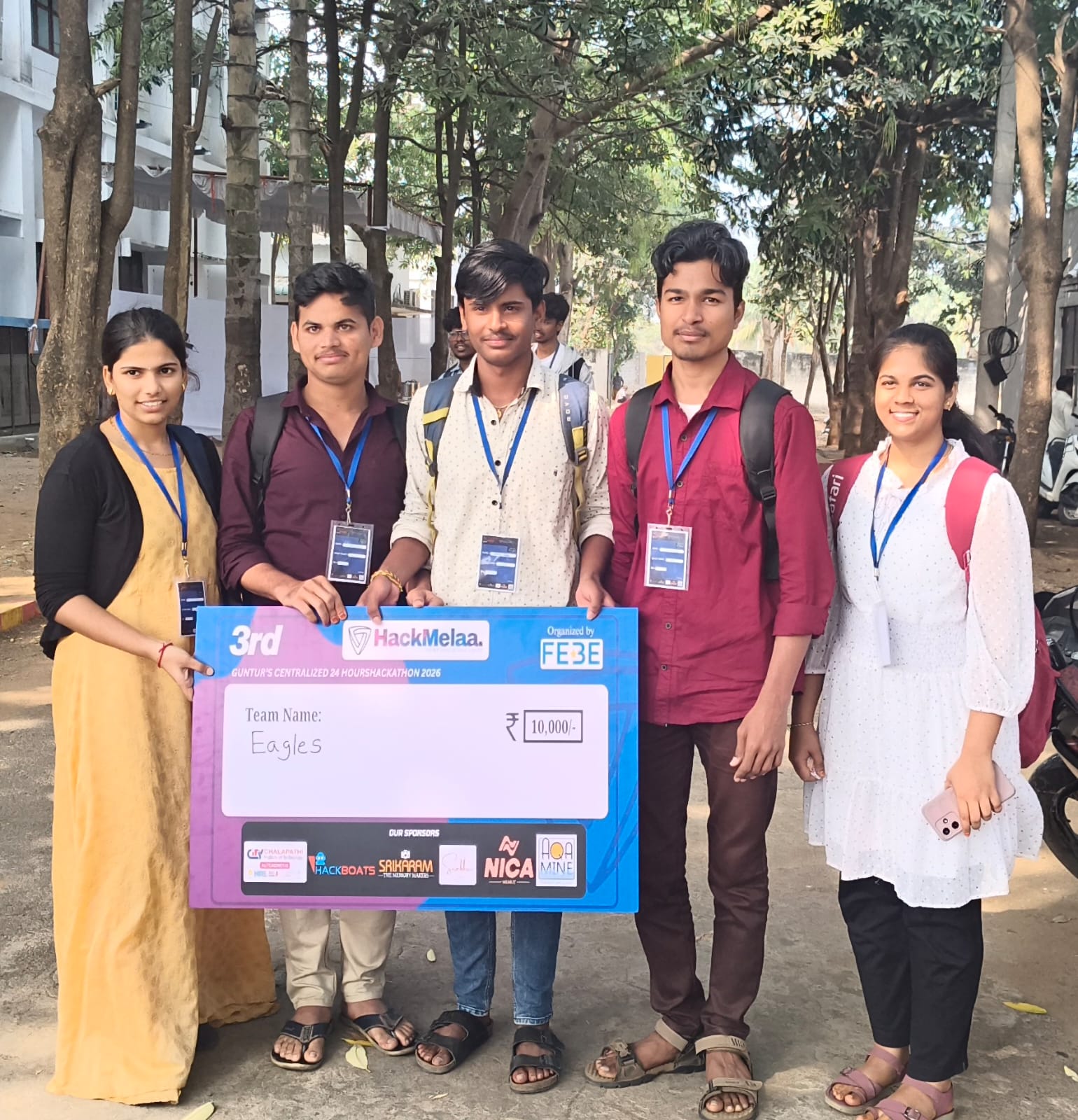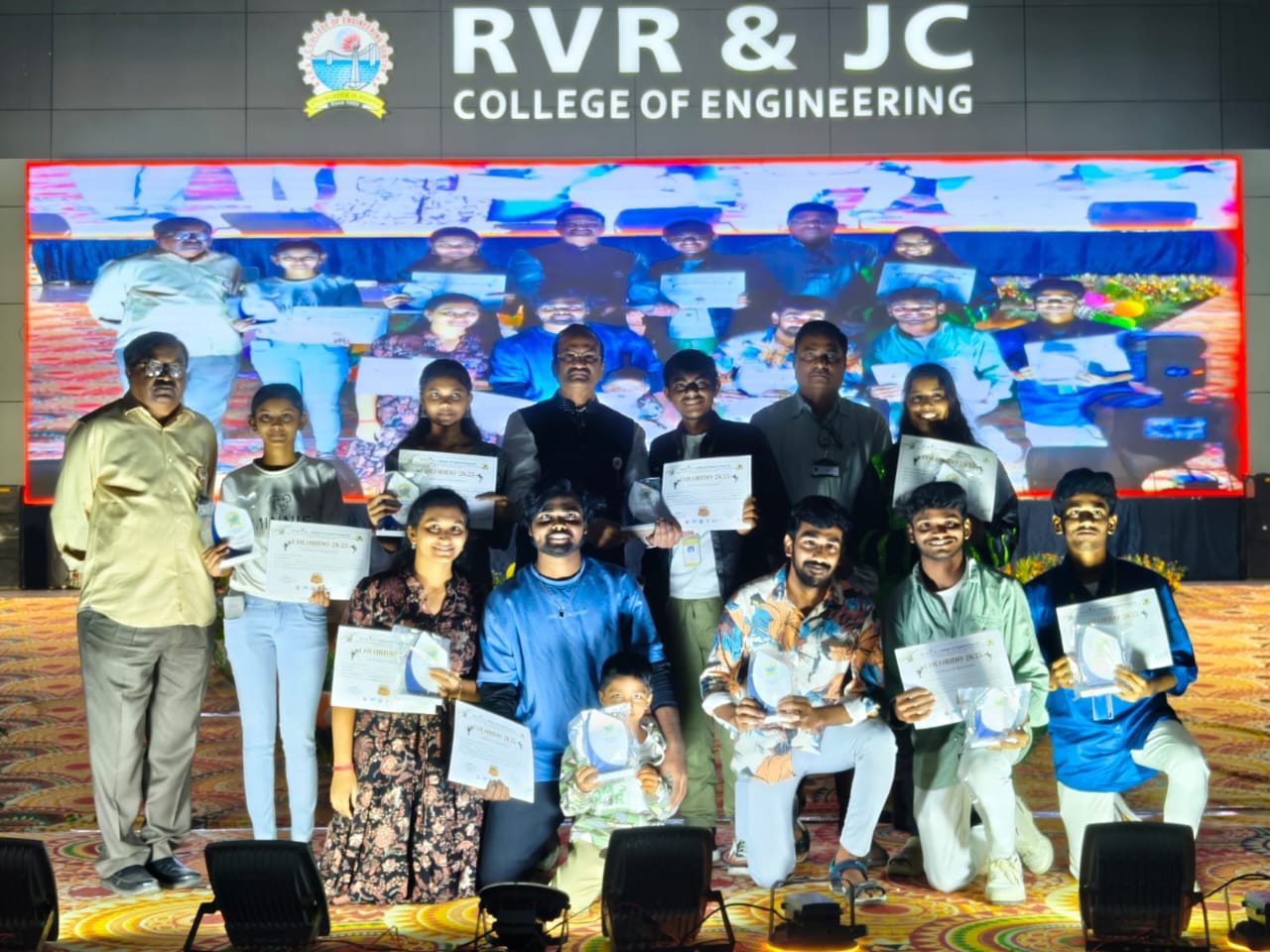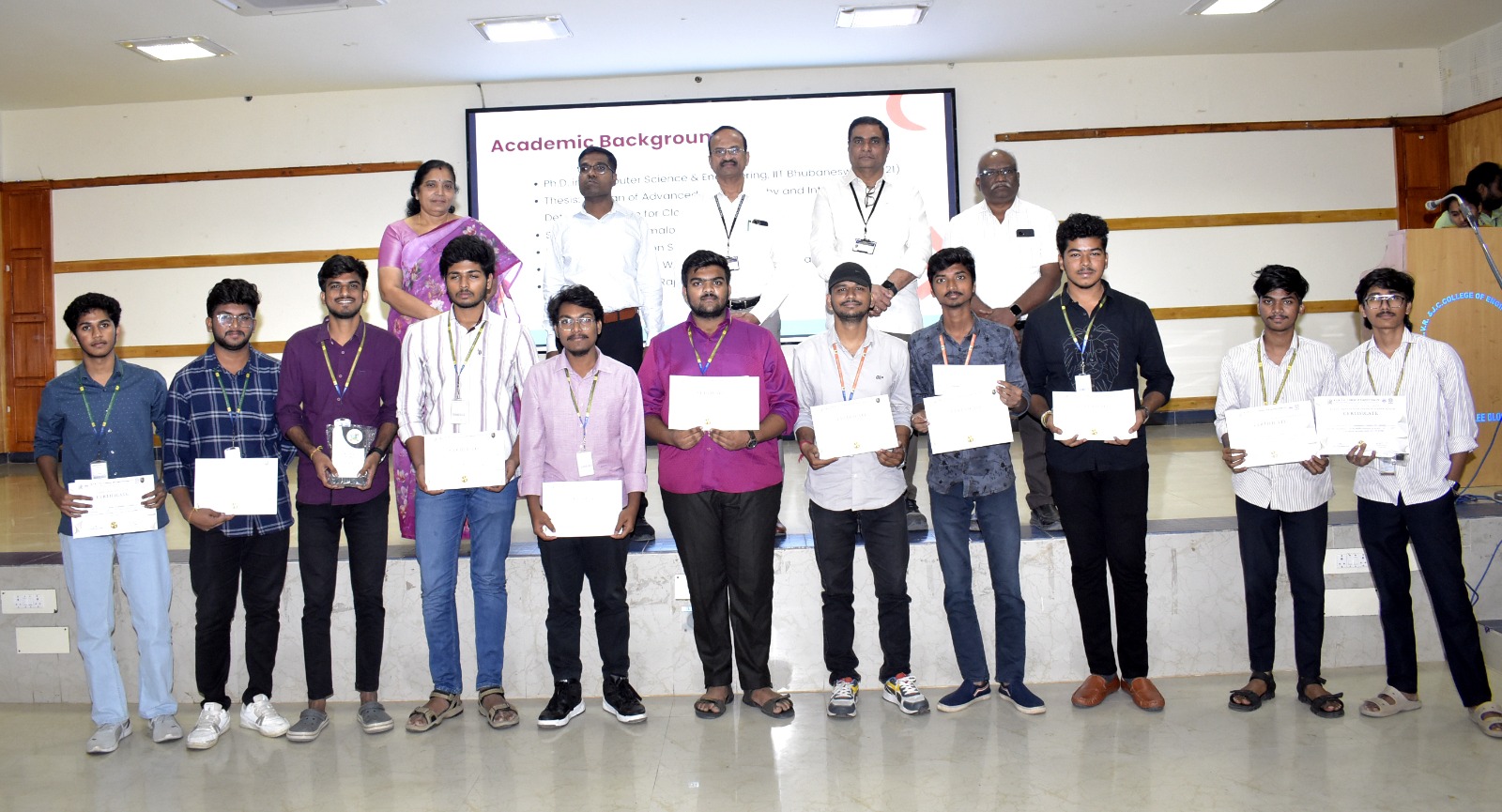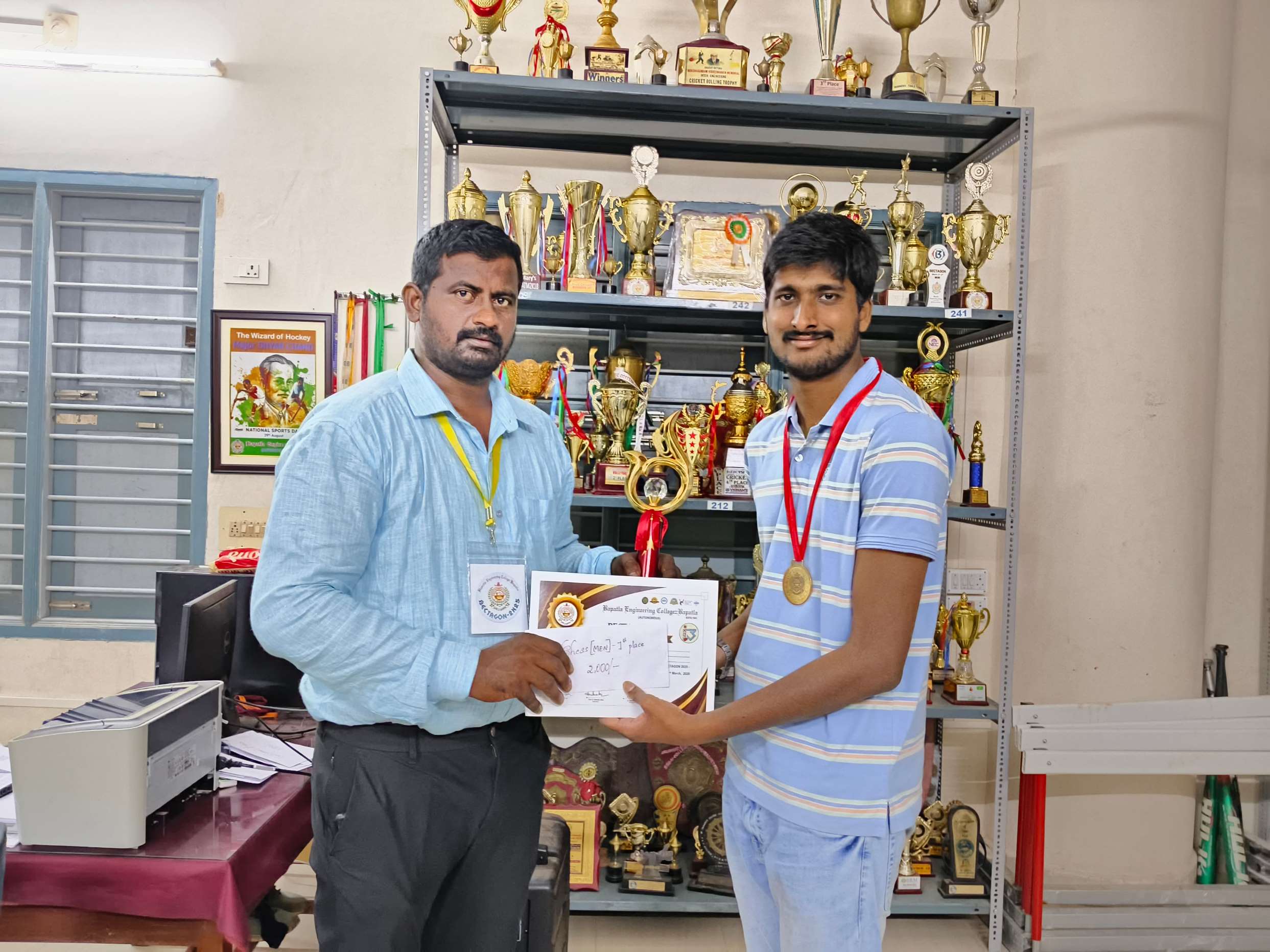

(Artificial Intelligence & Machine Learning)
Artificial Intelligence (AI) is a technology which enables a machine to simulate human behaviour. Machine Learning (ML), a subset of AI, allows a machine to automatically learn from past data without explicit programming. ML algorithms are used in a wide variety of applications, such as email filtering and computer vision, where it is difficult or infeasible to develop conventional algorithms to perform the needed tasks.
RVR & JC College of Engineering offers a 4-year Under Graduate B. Tech., CSE (AI & ML) programme with an intake of 60 seats for the academic year 2021-2022, increased to 180 seats from 2022-23.
Graduates of B.Tech., in CSE (AI & ML) will acquire Computer Science & Engineering skills with expertise in Artificial Intelligence and Machine Learning algorithms to work across many domains, including medicine, finance, robotics, and business intelligence.
Welcome to the Department of Computer Science and Engineering (Artificial Intelligence & Machine Learning).
Our department is dedicated to nurturing future-ready professionals equipped with strong technical skills, ethical values, and a deep understanding of AI and ML technologies. We focus on providing a solid foundation in core computing principles while exposing students to emerging trends like deep learning, natural language processing, computer vision, and data science.
With a team of experienced faculty, advanced laboratory facilities, industry collaborations, and research-driven initiatives, we strive to create a dynamic learning environment that fosters innovation and critical thinking.
We aim to empower students not just as engineers but as innovators and problem-solvers capable of addressing real-world challenges using intelligent technologies. I invite you to explore our programs, achievements, and initiatives through this website and be a part of our journey towards excellence.
.jpg)
Dr. G. Rama Mohan Babu,
Head of Department, CSE (AI & ML)
To become a premier center for Artificial Intelligence and Machine Learning education and research, nurturing innovative professionals with advanced skills and a strong sense of social responsibility to drive technological progress and societal well-being
| PEO1 | Graduates will build successful careers in industry, academia, research, or entrepreneurship by leveraging their expertise in Computer Science, AI, and ML, guided by strong professional ethics. |
|---|---|
| PEO2 | Graduates will embrace lifelong learning and research to continually advance their skills and contribute to innovation in AI & ML and related domains. |
| PEO3 | Graduates will design and implement sustainable AI-driven solutions that promote socioeconomic development and enhance quality of life. |
| PEO4 | Graduates will demonstrate leadership, effective communication, teamwork, and critical thinking in diverse, interdisciplinary, and global environments. |
| PSO1 | Graduates will possess in-depth knowledge and practical skills in AI and ML techniques, enabling them to develop and optimize data-driven models and algorithms for real-world applications. |
|---|---|
| PSO2 | Graduates will be proficient in building intelligent, autonomous, and scalable systems using modern tools and platforms, with expertise in areas like computer vision, NLP, robotics, and other AI/ML technologies. |
| PSO3 | Graduates will apply AI & ML tools responsibly to create economically viable and socially relevant solutions that promote sustainability and human welfare. |
| PO1 | Engineering knowledge: Apply knowledge of mathematics, science, engineering fundamentals, and an engineering specialization to the solution of complex engineering problems. |
|---|---|
| PO2 | Problem analysis: Identify, formulate, review research literature, and analyze complex engineering problems reaching substantiated conclusions using first principles of mathematics, natural sciences, and engineering sciences. |
| PO3 | Design/development of solutions: Design solutions for complex engineering problems and design system components or processes that meet the specified needs with appropriate consideration for the public health and safety, and the cultural, societal, and environmental considerations. |
| PO4 | Conduct investigations of complex problems: Use research-based knowledge and research methods including design of experiments, analysis and interpretation of data, and synthesis of the information to provide valid conclusions. |
| PO5 | Modern tool usage: Create, select, and apply appropriate techniques, resources, and modern engineering and IT tools including prediction and modeling to complex engineering activities with an understanding of the limitations. |
| PO6 | The engineer and society: Apply reasoning informed by the contextual knowledge to assess societal, health, safety, legal and cultural issues and the consequent responsibilities relevant to the professional engineering practice. |
| PO7 | Environment and sustainability: Understand the impact of the professional engineering solutions in societal and environmental contexts, and demonstrate the knowledge of, and need for sustainable development. |
| PO8 | Ethics: Apply ethical principles and commit to professional ethics and responsibilities and norms of the engineering practice. |
| PO9 | Individual and team work: Function effectively as an individual, and as a member or leader in diverse teams, and in multidisciplinary settings. |
| PO10 | Communication: Communicate effectively on complex engineering activities with the engineering community and with society at large, such as, being able to comprehend and write effective reports and design documentation, make effective presentations, and give and receive clear instructions. |
| PO11 | Project management and finance: Demonstrate knowledge and understanding of the engineering and management principles and apply these to one's own work, as a member and leader in a team, to manage projects and in multidisciplinary environments. |
| PO12 | Life-long learning: Recognize the need for, and have preparation and ability to engage in independent and life-long learning in the broadest context of technological change. |



.jpg)




